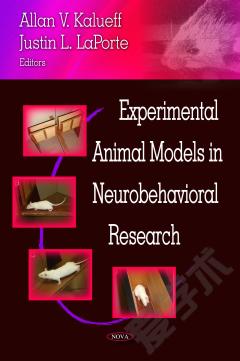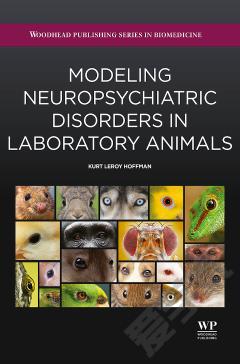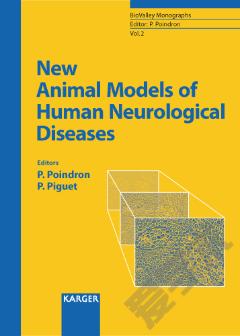Experimental Animal Models in Neurobehavioral Research
Behavioral research has been an exciting staple of the neuroscientific community's efforts in combating the rising challenges of mental healthcare. New innovations are bringing a greater understanding of the pathogenic mechanisms behind the disorders and allowing for progress towards their remedies. this translantial approach, using newly developed animal modes, is of critical importance for the study of neuropsychiatric disorders. While the differences between the subjects of clinical research and basic research are obvious, there are many neurobiological similiarites that allow for the possibility of creating an accurate animal analogue of a human disorder. These tools contribute to translational research and are the best hope for countering the challenges facing the field of mental health. This book provides chapters on a range of issues in biopsychology and behavorial neuroscience. It offers innovative methodological and conceptual advances regarding topics such as sleep, depression, and anxiety, as well as how these domains interact. All authors of the book are recognized experts in the field, and have written their chapters for an international audience of basic and clinical neuroscientists who are interested in behavioral neurophenotyping. The writing will also be accessible to students at the undergraduate level, while still providing an important update to graduate students and professional researchrs in the disciplines of psychology, biology, and neuroscience on this rapidly developing field.
{{comment.content}}








 京公网安备 11010802027623号
京公网安备 11010802027623号